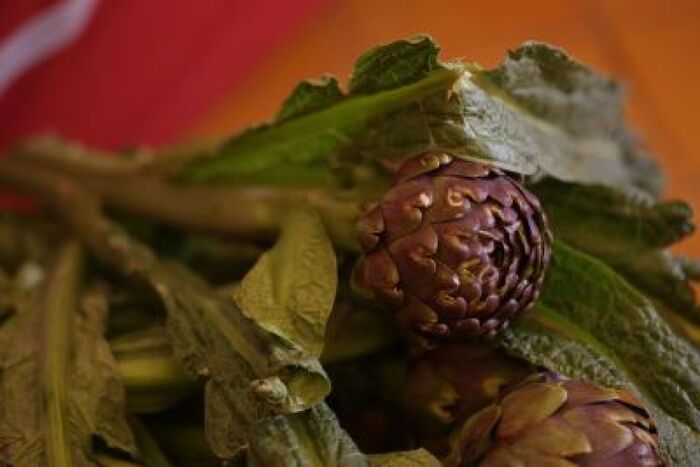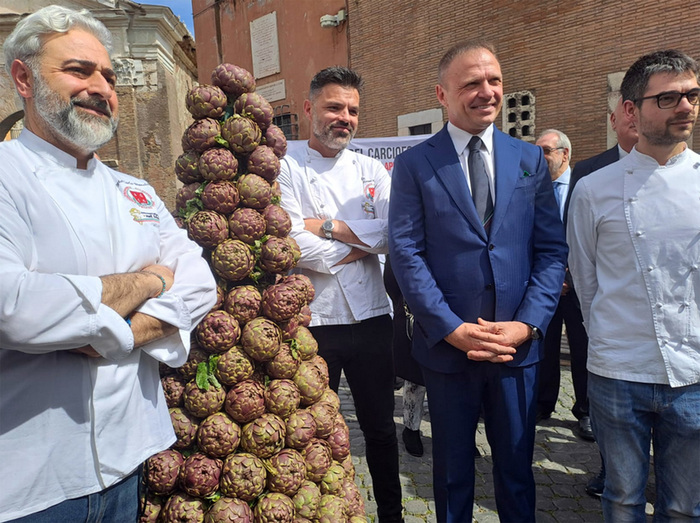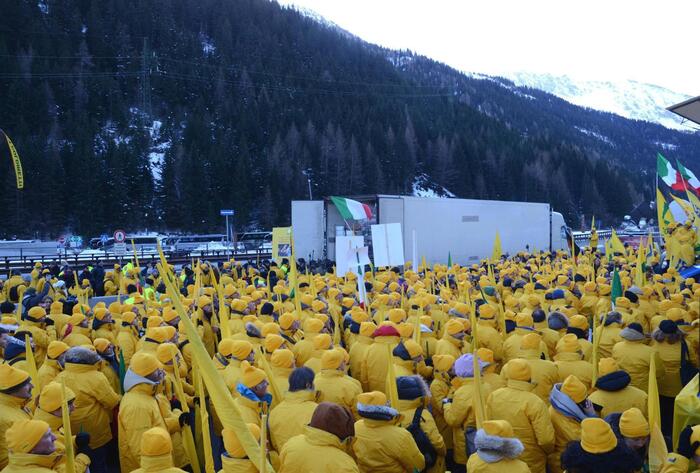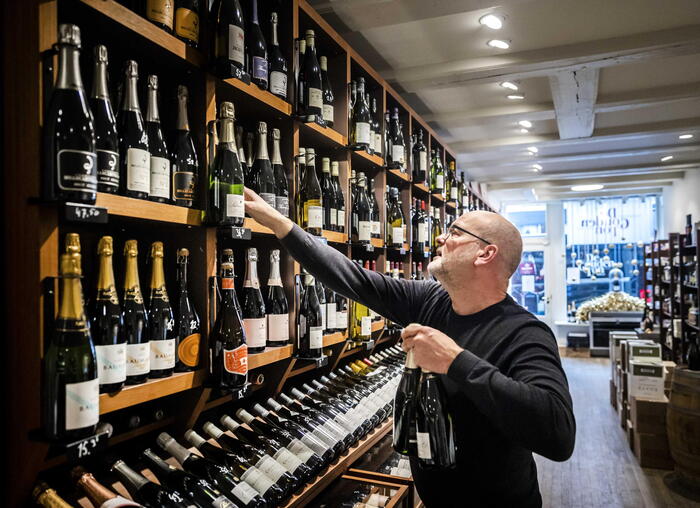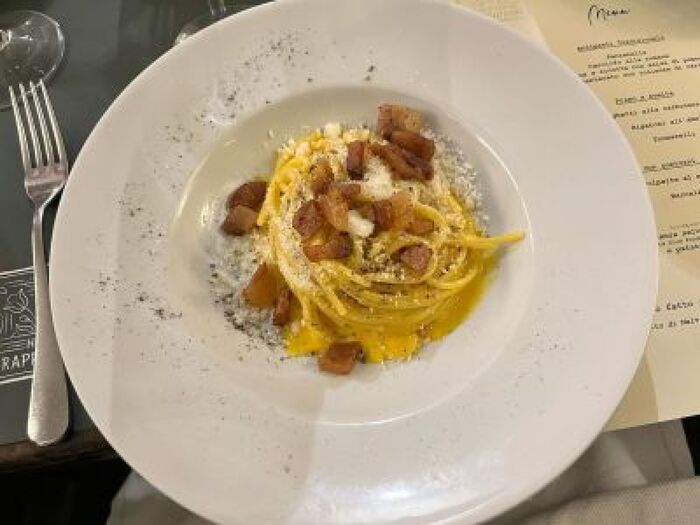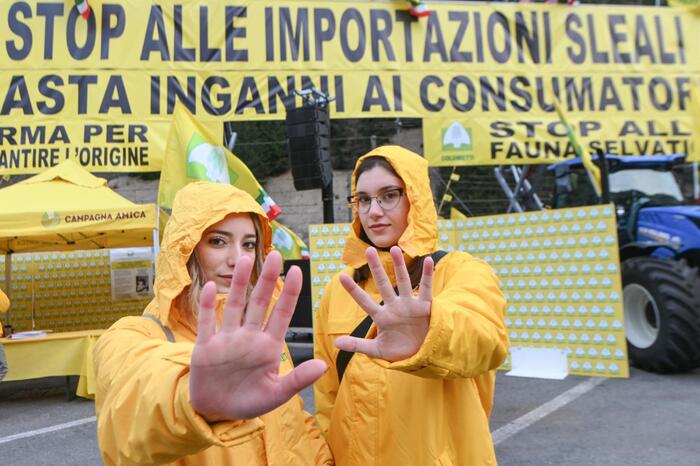The
first World Coalition of Farmer Markets is launched
to guarantee healthy and local food, supplying the areas where food poverty is growing by 15% due to the health emergency.
This was
announced by Coldiretti,
on the occasion of the glocal market in Rome, promoted by
Campagna Amica
for the inaugural start of
the UN pre-summit on the food system
.
Direct sales in farmers' markets, explains Coldiretti, supports the incomes of farmers, among the poorest categories on the planet and guarantees consumers the possibility of buying healthy food at the right price, reducing waste and defending biodiversity; all this in a virtuous ethical circuit with a fair distribution of value from the field to the table. Without forgetting the positive impact on the climate, with zero-kilometer products that do not have to travel great distances with polluting vehicles.
Globally, 20% of countries already have direct sales systems that can find a point of reference for growth in the new 'World Farmers Market Coalition' supported by FAO. A coalition, explains Coldiretti, to accompany governments towards specific regulatory frameworks and assist local farmers' associations in the development of networks such as Campagna Amica in Italy, the Farmer Market Coalition in the US or Canada. In the United States, in the last 20 years, farmer markets have increased by 400%, from 1,755 in 1994 to the current 8,755, with a turnover that has exceeded 12 billion dollars. If in Norway the development rate is 20% per year from 2003 to today, in Japan, the profitability margins for farmers in short supply chains are higher than in conventional ones.And then there are Denmark, the United Kingdom, where farmers' markets are seen as complementary or alternative to traditional distribution systems. Short supply chains that are starting to take shape also in developing countries, as evidenced by various projects in Ghana.
Fao: Martina, with the pre-summit Italy is the protagonist
- "It is very important that Italy is also a protagonist in these days with the pre-summit, which is held here in FAO in Rome": said Maurizio Martina, deputy director of FAO and former Minister of Agricultural, Food and Forestry Policies, on the sidelines of the meeting 'Women redesign food systems', held in Rome this morning at the Campagna Amica di Coldiretti market and which was also attended by the UN Deputy Secretary General, Amina J. Mohammed. The pre-summit, which will be held from 26 to 28 July, represents a "great discussion on the impact of the pandemic on food systems and also on the full understanding that environmental transition is the key to ecological transition and true environmental sustainability.The real mission of the pre-summit is to discuss this and how to concretely equip ourselves to fight hunger in the world ". The deputy director of FAO therefore reiterated that the" pre-summit must be the real space for sharing in order to then take action. , because at the final summit to be held in New York during the next UN General Assembly, we need to be ready to act. "Regarding the controversy surrounding the summit in the Big Apple, with NGOs and other realities denouncing the dominant role acknowledged to multinationals, "all voices must be listened to with great attention, we need plurality and sensitivity and therefore everything that can be used to increase dialogue must be supported. There are always the tools to communicate ", concluded Martina.
In Rome, women protagonists of food processing
- It was an almost exclusively female parterre and with an Italian exponent that this morning animated the meeting 'Women redesign food systems', held in Rome at the Campagna amica di Coldiretti market. In addition to the UN deputy secretary, Amina J. Mohammed, who expressed her belief that "women will heal the world", there were also speeches by Elisabeth Nsimadala, Ugandan and president of the Pan-African Farmers Organizations, and by Valentina Stinga, an Italian who, after attending Bocconi University in Milan, decided to return to her native South, Campania. "Over 80 percent of the African population lives on agriculture and 60 percent of it is represented by women, even with minors engaged in farming the land.These are real families of farmers ", said Nsimadala. The latter has pointed the finger at the African" patriarchal systems "that have prevented women" from accessing the means of production, land and therefore also financing. ", with the family role that represents" another impediment to the opportunities to have a guaranteed space "." The decision to buy from small farmers makes their work possible, in Coldiretti I shared best practices both in Italy and in the world ", Stinga underlined, adding "that trust and an adequate communication strategy can be found in farmers, but even here it is difficult to demonstrate that women can do everything". "When I work I think and this morning, picking tomatoes,I reflected that they are a miracle with climate change. The rain at the end of July, in fact, made me experience the phenomenon on my skin ", he concluded.
UN, 20 million Italians in farmers' markets in 2020
- In the year of the pandemic, 20 million Italian consumers bought food at farmers' markets driven by a new sensitivity towards health but also by the desire to recover direct contact with those who grow the products they bring to the table. This was announced by Coldiretti, based on the report on the 'World Farmers Market Coalition' produced by the Divulga Study Center for the inaugural start of the UN pre-summit on food systems. Italy, according to Coldiretti, is the EU country with the largest organized network of farmers' markets: 12,000 farmers, 1,200 Campagna Amica farmer markets for a national turnover of the short supply chain with direct sales of 6 billion euros each. 'year. An organized system throughout the country that has not only an economic value,but it also carries out an important social function, promoting food education and knowledge of the territories. Thanks to a variety of offers ranging from fruit to seasonal vegetables, from fish to meat, from oil to flowers, the average expenditure in farmers' markets in a year has risen from 27 to 34 euros, over a third of the total between those who frequent the farmer markets. Among the reasons, the possibility of finding seasonal, zero km and quality products, but also because 84% of Italians prefer to shop in person directly from the producer for food and wine. Direct sales that not least cut food waste by 60% compared to traditional systems according to Ispra and guarantee an important contribution to the fight against pollution and climate change.
UN, first glocal market from Dulse algae to Ghana tuber
- From Canadian Dulse dried seaweed to Ghana's Cocoyam tuber, from Norwegian salted goat meat to African Shea berries, from Caucasus fruit to US horseradish bitters. These are some of the curious products saved from extinction thanks to the work of generations of farmers on display in the first glocal market, inaugurated by Coldiretti at Campagna Amica in Rome with the UN deputy secretary Amina J. Mohammed, on the occasion of the start of the pre-summit of the UN on food systems. The specialties that farmers sell in local markets around the world with precious characteristics, wisely guarded against food standardization and banalization,such as jelly and dandelion jam entirely handmade according to the Amish tradition that reject modern processing and preservation technologies. But these products also carry out an environmental function, continues Coldiretti, such as the Danish city bee honey that is born on the roofs of Copenhagen, helps urban greenery and biodiversity with the vital pollinating action of bees and is an absolutely contaminant-free, natural honey. 100% or like the Danish ?? rbæk cider, also called anti-waste cider because it is obtained from 5 million kilos of apples that fall from the trees and are abandoned. Indeed, on the island of Funen in Denmark, there is a long tradition of delivering excess fruit, which would otherwise be lost, to a company that transforms it into cider.But these products also carry out an environmental function, continues Coldiretti, such as the Danish city bee honey that is born on the roofs of Copenhagen, helps urban greenery and biodiversity with the vital pollinating action of bees and is an absolutely contaminant-free, natural honey. 100% or like the Danish ?? rbæk cider, also called anti-waste cider because it is obtained from 5 million kilos of apples that fall from the trees and are abandoned. Indeed, on the island of Funen in Denmark, there is a long tradition of delivering excess fruit, which would otherwise be lost, to a company that transforms it into cider.But these products also carry out an environmental function, continues Coldiretti, such as the Danish city bee honey that is born on the roofs of Copenhagen, helps urban greenery and biodiversity with the vital pollinating action of bees and is an absolutely contaminant-free, natural honey. 100% or like the Danish ?? rbæk cider, also called anti-waste cider because it is obtained from 5 million kilos of apples that fall from the trees and are abandoned. Indeed, on the island of Funen in Denmark, there is a long tradition of delivering excess fruit, which would otherwise be lost, to a company that transforms it into cider.it helps urban greenery and biodiversity with the vital pollinating action of bees and is an absolutely contaminant-free honey, 100% natural or like the Danish ?? rbæk cider, also called anti-waste cider because it is obtained from 5 million kilos of apples that fall from the trees and are abandoned. Indeed, on the island of Funen in Denmark, there is a long tradition of delivering excess fruit, which would otherwise be lost, to a company that transforms it into cider.it helps urban greenery and biodiversity with the vital pollinating action of bees and is an absolutely contaminant-free honey, 100% natural or like the Danish ?? rbæk cider, also called anti-waste cider because it is obtained from 5 million kilos of apples that fall from the trees and are abandoned. Indeed, on the island of Funen in Denmark, there is a long tradition of delivering excess fruit, which would otherwise be lost, to a company that transforms it into cider.which would otherwise be lost at a company that transforms it into cider.which would otherwise be lost at a company that transforms it into cider.

